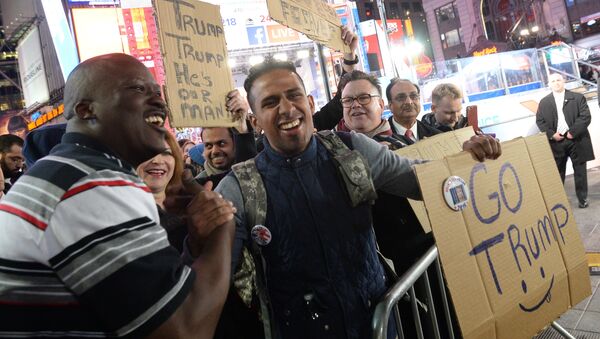“We have just seen a revolt of the masses,” Freeman, who also served as assistant defense secretary for international security affairs, said Wednesday.
He recalled that retired CIA officer Haviland Smith “some months ago pointed out that, were he or someone like him analyzing the United States, they would quickly come to the conclusion that it was in pre-revolutionary condition.”
Many Americans feel alienated from what they regard as selfish elites and have been angered by their apparent indifference to the diminishing prospects other citizens face, Freeman asserted.
He cautioned, however, that although Trump was elected with the goal of lifting these people from their malaise, the businessman lacks the experience or expertise to do so.
“The question now is whether the strongman we have elected can in fact govern,” Freeman observed. “He has no experience and no organizational support either from the party or a significant entourage of supporters.”
“Some of those who have claimed to have been advising him are at best meretricious and at worst shallowly opportunist. In many respects personnel is policy. How will President Trump staff his government?”
Until that question is answered, the United States will remain mired in confusion that translates into strategic vulnerability, Freeman argued.
But Trump’s victory will have lasting consequences, he said, because it marks a historic rejection of governance by experts — a feature of Washington since the dawn of President Franklin Roosevelt’s New Deal over 80 years ago.
“The people have repudiated their ‘betters,’” Freeman said. “The legions of ‘securocrats’ and minions of the military-industrial complex in the Washington metropolitan area will have to find work outside the realm of the revolving door.”
Freeman, a lifetime director of the Atlantic Council think tank, was deputy chief of mission and chargé d’affaires at US embassies in Beijing and Bangkok. He also has served in senior posts at the US Department of Defense.




